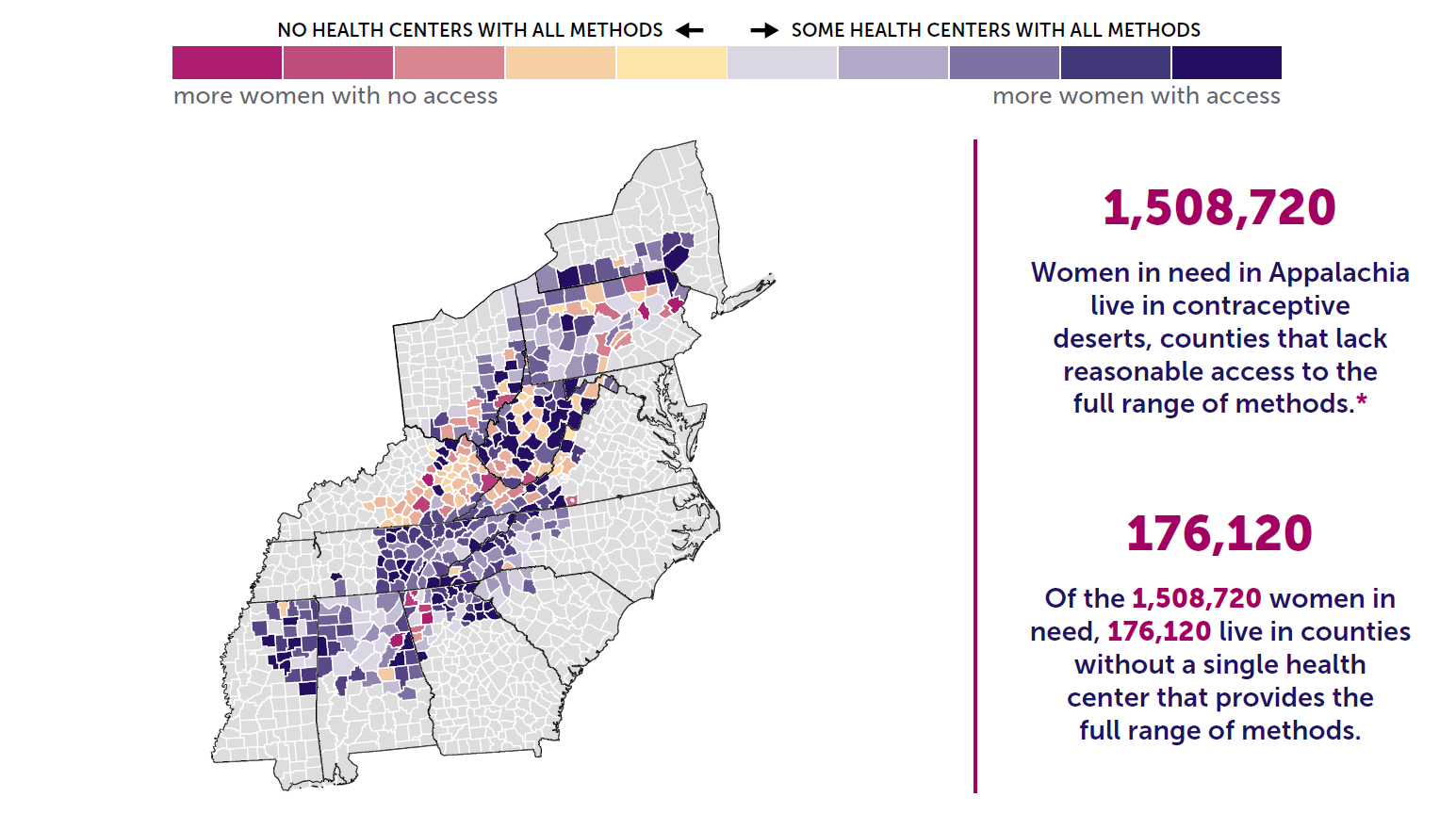OVER 1,500,000 WOMEN IN THE APPALACHIA REGION LIVE IN CONTRACEPTIVE DESERTS
(Washington, D.C.) — A new analysis from by Power to Decide finds an estimated 1,508,720 women living at or below 250% of the poverty level in the Appalachia region live in contraceptive deserts, counties in which there is not reasonable access to a health center offering the full range of contraceptive methods. Nationally, more than 19 million women in need live in contraceptive deserts.
The Appalachia region encompasses 423 counties across 13 states. Within this challenging landscape, some states have taken proactive steps to expand access to contraception:

- Kentucky, Maryland, New York, Ohio, Pennsylvania, Virginia and West Virginia have expanded Medicaid to low-income adults, which helps decrease the percentage of uninsured women, and by extension, give them contraceptive coverage.
- Maryland and New York have passed laws to protect insurance coverage for the full range of contraceptive methods.
- Maryland, New York, South Carolina, Virginia and West Virginia require insurance to cover an extended supply of prescription contraceptives.
- Maryland, North Carolina, Tennessee, Virginia and West Virginia allow pharmacists to prescribe contraception.
“Despite proactive efforts in some states, more than 1.5 million women across Appalachia must still overcome significant barriers to access the birth control they need and deserve,” said Power to Decide CEO Raegan McDonald-Mosley, MD, MPH. “The challenge of covering costs associated with obtaining family planning services — such as transportation, childcare and unpaid time off from work — may be too great a burden for women already struggling to make ends meet.”
Visit our website for more information about contraceptive access in Appalachia, as well as an overview of state telehealth policies and their impact on contraceptive access.
# # #
Power to Decide is a private, non-partisan, non-profit organization that works to ensure all people—no matter who they are, where they live, or what their economic status might be—have the power to decide if, when and under what circumstances to get pregnant or have a child.

